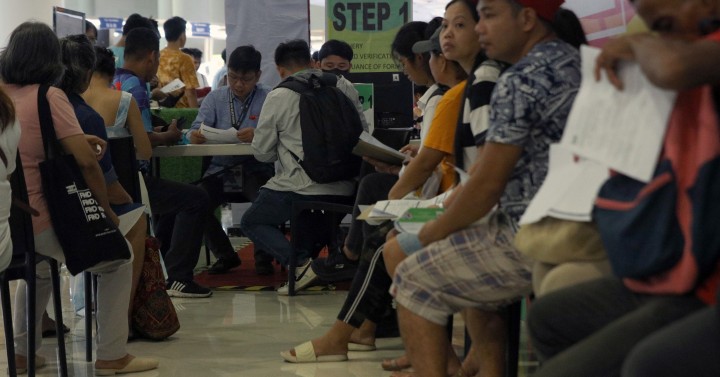2024-12-03 15:13:00
On November 30th, the world celebrated International Information Security Day, a date that reinforces the importance of protecting data and digital systems. In Brazil, financial institutions are adopting several measures to strengthen security and protect their customers against cyber fraud.
Second data from the Brazilian Federation of Banks (Febraban)the sector invests around 10% of its technology budget in security, which represents approximately R$3.5 billion per year. But this value is expected to reach around R$4.5 billion in 2024. Furthermore, biometric identification, such as fingerprints and facial recognition, is becoming increasingly common to validate identities and protect data.
Given that Brazil was the seventh country with the most cyber attacks in 2017the need for continued investment in cybersecurity by banks becomes even more pressing. Of financial institutions, 72% of global Chief Risk Officers (CROs) see cybersecurity as the top risk for the coming year. In second place is credit risk, with 59%. The numbers are from study carried out by EY consultancy and IIFinvolving 88 banks in 30 countries.
With the aim of improving the digital security scenario in financial institutions in Brazil, the Ministry of Justice and the Brazilian Federation of Banks (Febraban) signed in August a strategic partnership to combat financial scams on the internet: the National Financial Security Strategy . The agreement, signed by Minister Ricardo Lewandowski, provides for the creation of a task force dedicated to preventing and combating fraud and virtual crimes.
Another additional digital security measure to guarantee the integrity of transactions was the adoption of the New Pix Rules, which aim to strengthen protection against fraud. This includes updating systems and implementing new technologies to comply with Central Bank requirements. Additionally, institutions must invest in employee training and customer awareness about safe payment practices.
Information Security and legal impacts
Information security is not just a technical issue, but also a legal compliance issue. With the implementation of the General Data Protection Law (LGPD) in Brazil, companies need to adopt strict measures to protect their customers’ personal data.
On this International Information Security Day, Felipe Reis highlights that it is essential to reflect on the continuous evolution of the banks’ security system and the positive impacts of this evolution in reducing lawsuits.
“The best way is to prevent. In times of digital insecurity, investing in this sector guarantees peace of mind and security for both the customer and the bank”, explains Reis.
The evolution of the banks’ security system has generated several benefits, consequently leading to a decrease in the number of lawsuits related to financial fraud and data breaches, resulting in greater consumer satisfaction and loyalty.
With fewer resources allocated to handling litigation, institutions can focus more on innovation and continuous improvements to their services. This contributes to a more stable and predictable environment, benefiting both banks and their customers.
“On International Information Security Day, it is essential to recognize these advances and continue investing in technologies that protect customers’ data and privacy”, concludes Felipe Reis.
1733247602
#Information #Security #impacted #banking #system
What are some specific examples of new technologies being adopted by Brazilian financial institutions to enhance cybersecurity?
## Interview with a Cybersecurity Expert
**Host:** “Let’s talk about cybersecurity, a particularly relevant topic these days. Joining me today to discuss the state of cybersecurity in Brazil’s financial sector is Alex Reed, a renowned cybersecurity expert. Welcome to the show, Alex Reed.”
**Alex Reed:** “Thank you for having me. It’s a pleasure to be here and discuss this critical issue.”
**Host:** “As we know, International Information Security Day was just celebrated. It seems like a good opportunity to talk about the strides financial institutions in Brazil are making against cyber threats. What are some of the key steps they’re taking?”
**Alex Reed:** “That’s right. It’s encouraging to see Brazilian banks actively addressing cybersecurity. The latest data shows a significant commitment from institutions. They’re investing approximately 10% of their technology budget in security, which amounts to a substantial R$3.5 billion annually, with projections indicating this figure will climb to R$4.5 billion in 2024. [1 ] This clearly demonstrates their recognition of the evolving threat landscape.”
**Host:**
“So, a considerable financial commitment is being made, but what specifically are they doing with these funds? What are some of the measures being implemented?”
**Alex Reed:** “These investments are fueling several key initiatives. A prominent trend is the adoption of biometric identification, including fingerprint and facial recognition, to strengthen identity verification and protect sensitive data. This adds an extra layer of security to transactions. Additionally, the recent implementation of New Pix Rules is a crucial step towards bolstering protection against fraud. These rules mandate system upgrades, the adoption of new technologies, and a greater emphasis on employee training and customer awareness, all aimed at ensuring the integrity of financial transactions.”
**Host:** ” That’s insightful. You mentioned New Pix Rules. Can you elaborate on their significance, especially considering that Brazil faced significant cyber attacks in the past?”
**Alex Reed:** ” You’re right to highlight Brazil’s history with cyberattacks. Back in 2017, Brazil was ranked the seventh most targeted country in the world. This underlines the urgency of proactive measures. The New Pix Rules are a direct response to this challenge. They introduce a comprehensive framework for mitigating fraud by implementing robust security protocols and promoting a culture of cybersecurity awareness within financial institutions and among their customers. It’s a collaborative effort aimed at building a more secure digital financial ecosystem.”
**Host:** “It’s clear that a combination of technological advancements and human engagement is crucial in this fight. Any final thoughts on the future of cybersecurity in Brazil’s financial landscape?”
**Alex Reed:** ” I’m optimistic. The increasing collaboration between the government, the financial sector, and individuals is a positive sign. Partnerships like the National Financial Security Strategy, launched by the Ministry of Justice and Febraban, are crucial in coordinating efforts to combat financial scams. It’s a shared responsibility, and only through continuous innovation, education, and collaboration can we effectively address the evolving nature of cyber threats. [1]”
**Host:** “Alex Reed, thank you for sharing your expertise and insights. This is certainly a topic that will continue to be of paramount importance in the years to come.”



